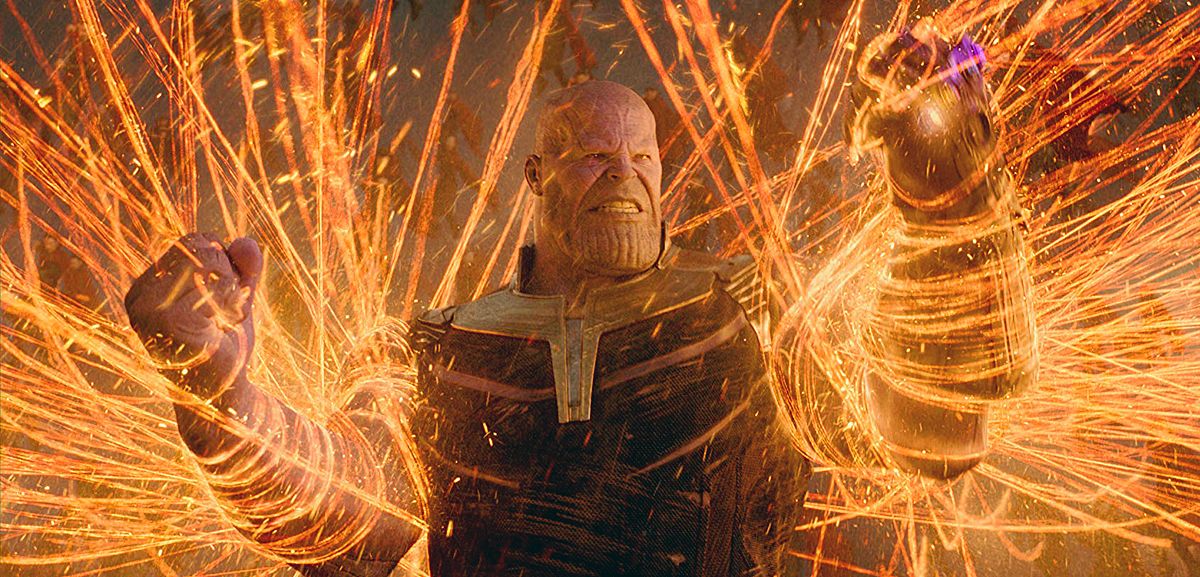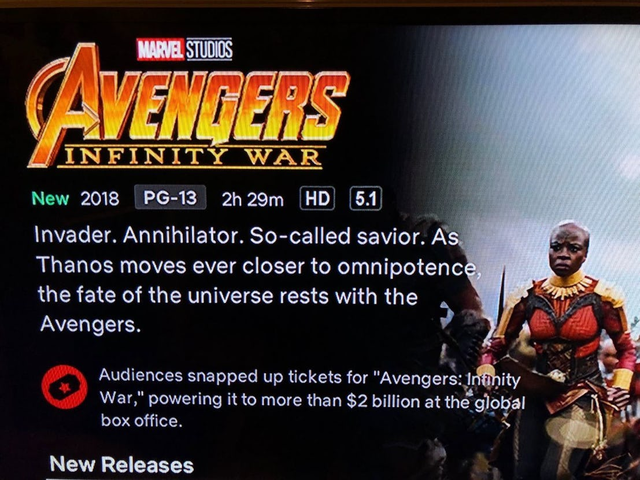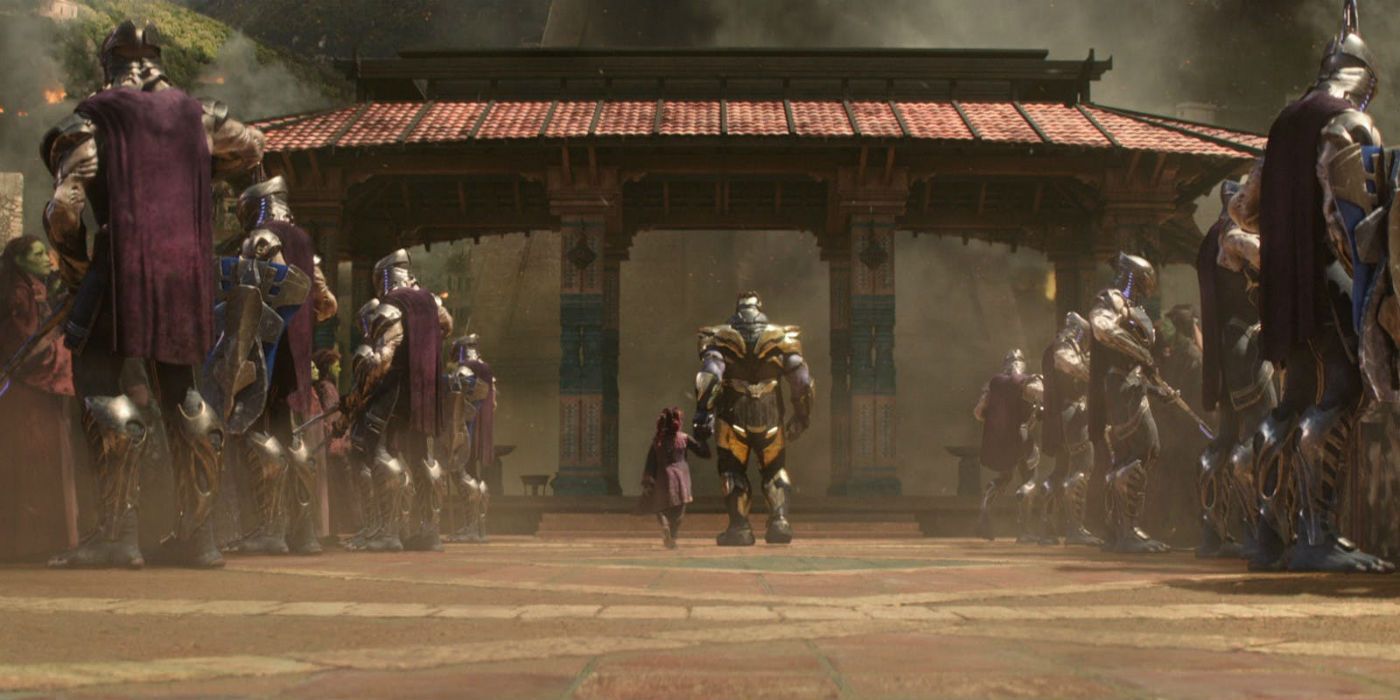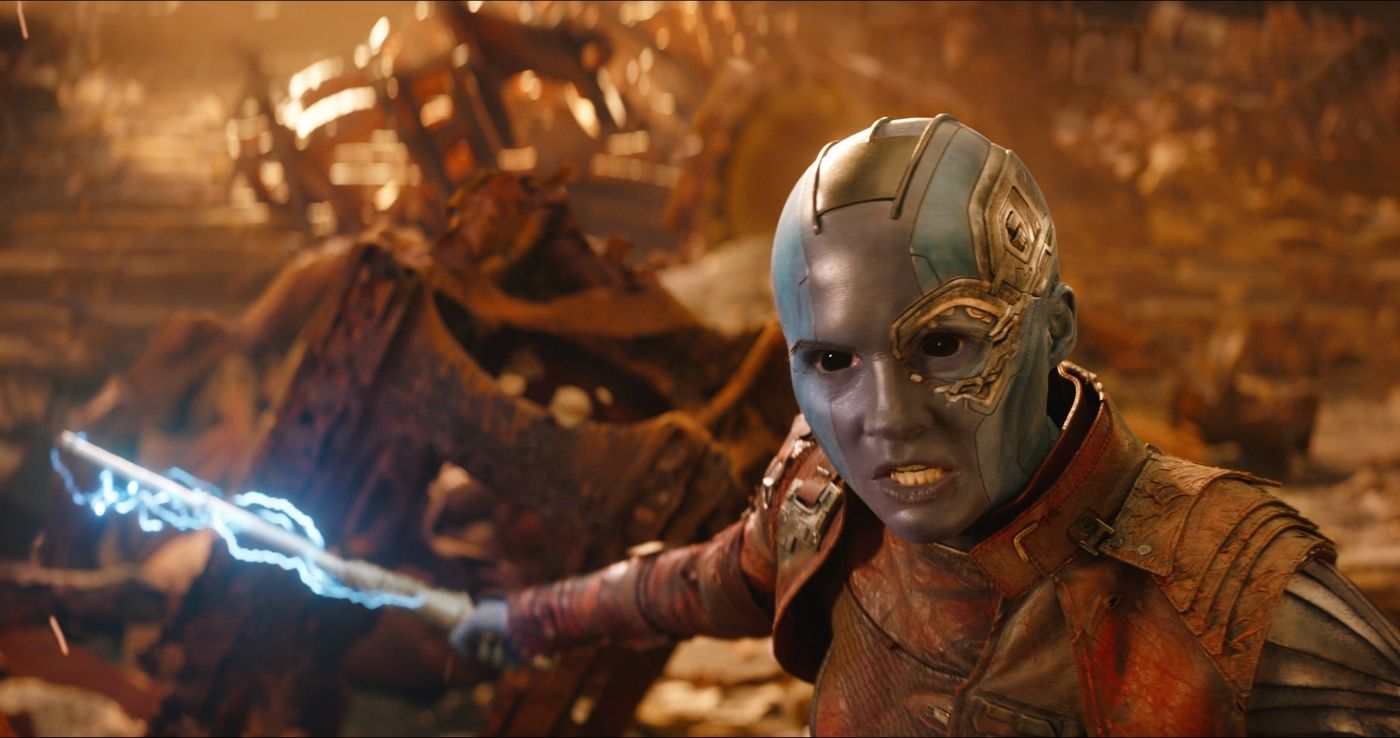When Avengers: Infinity War arrived on Netflix last week, some fans took issue with the premium streaming service's characterization of the Marvel Cinematic Universe's greatest antagonist. The film's original synopsis read, "Superheroes amass to stop intergalactic sociopath Thanos from acquiring a full set of Infinity Stones and wiping out half of all life in the universe," triggering an immediate backlash against the term "intergalactic sociopath." Netflix relented with an update that referred to the Mad Titan as an "invader," "annihilator" and a "so-called savior."
But the thing is, Thanos is a true villain, in the MCU or otherwise, wiping out half of all life in the universe with the Infinity Gauntlet, on top of all the death and destruction he wreaked in the build-up to Infinity War's devastating climax. Single-minded in his pursuit of a goal that he's convinced himself is noble, Thanos, in is methodology and shortsightedness, is an irredeemable antagonist and the greatest threat to the MCU to date.
RELATED: Infinity War Gets the Bandersnatch Treatment in Funny (But Cruel) Video
Thanos is a galvanizing figure, naturally, with directors Anthony and Joe Russo going so far as to refer to him as the protagonist of Infinity War. He seeks to wipe out half of all life to rein to bring an end to overpopulation and a depletion of resources, first proposing the plan on a much smaller scale on his home world of Titan. After his peers rejected his solution, and the planet was devastated, Thanos took his genocidal crusade to the stars, wiping out half the population of each world he invaded, including Gamora's, and adopting the child as his own.
Thanos pursues his mission with a cold, calculating efficiency. No remorse is expressed when he orders the annihilation of half of Gamora's people, including her parents, and he acts almost bored during the attack on the Asgardian refugee ship, even as he stands among the bodies of the dead and dying. That lack of empathy in pursuit of his own cruel calculus would seem to be a prime indicator of sociopathy. That's underscored by the grim satisfaction he expressed in the final scene of Infinity War, following his twin victories on Titan and in Wakanda.
RELATED: Wait, Only 4 of Infinity War's 21 Heroes Are Actually Avengers?
Thanos only demonstrates anything resembling genuine emotion when he decides to sacrifice Gamora's life in exchange for the Soul Stone. While the Mad Titan does shed a tear over the impending murder, he does so without any real hesitation. His self-professed paternal love for Gamora is discarded in pursuit of a goal; it's a transaction. For Thanos, achieving "perfect balance" is what matters, and everything else is merely a distraction. And if there was any doubt whether Thanos was a halfway decent father figure, remember that he also adopted poor Nebula.
Nebula and Gamora were raised, effectively, as brutal competitors, vying perhaps not so much for Thanos' affections as his approval. Repeated losses to her adoptive sister led to Nebula becoming a piecemeal cyborg (a deleted scene revealed Gamora having become a sadistic killer in her own right under her "father's" tutelage). When a captive Gamora initially refuses to disclose the location of the Soul Stone, Thanos takes out his frustrations by torturing Nebula until her sister relents.
RELATED: How Strong Is Thanos Without The Infinity Gauntlet?
Of course, Thanos' motivations are more "noble" in Infinity War than they are in the source material, where he's long sought the affection of the personification of death. In the MCU, he's driven by a misguided desire to save the universe (well, half of it, in any case), at least on the surface. However, we can't disregard the role of the Mad Titan's massive ego: He's so convinced that he's right, he's willing to sacrifice half of existence to prove it.
Rather than use his knowledge, and now almost unimaginable power, to pursue so greater sustainability across the universe, his instinct remains genocide on an intergalactic scale. What's more telling is that Thanos appears to enjoy the massive, and even casual, death and destruction. At the very least, he's not visibly troubled by the swath he and his minions have cut. Of the billions of deaths he's caused across the MCU, it's only the murder of Gamora that gives him momentary pause.
For all the Subreddits and memes, Thanos was never truly, morally right, but instead he remains an unsympathetic -- and, yes, sociopathic -- villain, made more interesting by a tragic backstory and an ambitious plan. Whether he'll attempt to redeem himself in Avengers: Endgame has yet to be seen, but it would be surprising if he were capable of such a change of heart.
Avengers: Endgame will arrive on April 26, 2019. Directed by Joe and Anthony Russo, the film stars Robert Downey Jr., Josh Brolin, Mark Ruffalo, Tom Hiddleston, Chris Evans, Chris Hemsworth, Jeremy Renner, Chris Pratt, Elizabeth Olsen, Chadwick Boseman, Sebastian Stan, Benedict Cumberbatch, Paul Bettany, Samuel L. Jackson, Cobie Smulders, Benedict Wong, Zoe Saldana, Karen Gillan, Vin Diesel, Dave Bautista, Pom Klementieff, Scarlett Johansson, Tom Holland and Anthony Mackie.




